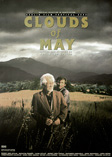|
|
A
Look At The Passing of Time The references of "Clouds of May" abound. The director Nuri Bilge Ceylan gives us a first clue by dedicating the film to Anton Chechov of whom he indeed tries to recreate the calm atmosphere of the daily life in a countryside. But there are many more. In this simple-looking, but deeply felt and masterly constructed film, Ceylan depicts the life of his own family, of his father and mother and a few relatives, living not very far from the big city, but still managing to spend their days in a charming natural background of simply built houses surrounded by gorgeous old trees and green pastures. The rhythm of life is very much the same as the natural rhythm of passing seasons and therefore Ceylan gives us a meditation about the relativity of time, especially when the problems of the not-so-far big city start to interfere. The importance given to the decor, to the objects which surround us and to our relations with them are not without a reminiscence to Marcel Proust. Nuri Bilge Ceylan started a relatively new, but already astonishing career with a few well-noticed and awarded shorts, and then with "Kasaba - The Town", a remarkable meditation of people of the rural area in a quickly fading summer - again (or rather for the first time) speaking of his family. Now he returns once more to his favorite background and people. The son of an old couple, the young Muzaffer, who does note leave his camera, even not for a second, is of course no one else but himself. His 'assistant', the eternal unemployed Saffet, is the same way probably a real person. The way in which he tries to persuade his parents and friends to act in front of his camera and to be actors of a film inspired directly by their daily lives, is nothing but the hardly disguised adventure of the making of "Kasaba", his previous film. We think of Iranian cinema and of the great Abbas Kiarostami: another reference certainly. Real people are, in front of our eyes, the heroes of a story as simple as a drop of water, but in the meantime almost as necessary and even vital as water itself. Ceylan reminds us a reality which we are all supposed to know, but which we keep to forgetting. Art is nothing else but a look to life itself and a sharp observation of everything which surrounds us. And a meditation on time and on the relativity of things is the essence of every philosophical effort. Muzaffer/Nuri Bilge finally succeeds to win over the opposition of his parents and makes them passing in front of his camera. But there the real problems start. Even if you want to make a simple documentary about real people, is it enough or even possible to make them just sit there and to ask them to be as natural as they would be without that disturbing presence of the camera? The answer to that is among the most charming parts of that peculiar film, and there the film reaches a marvelous sense of humor. A very natural humor, owing nothing to the jokes written by professional wise-crackers, but coming from the most natural behavior of real people who find themselves in an unusual situation. The cinema of Nuri Bilge Ceylan is a kind of philosophical effort, but not deprived of humor. Another concern of the director is the ecological problems. The old trees which the father took care of since 50 years are in danger of being cut down as a result of the wrong forest politics of the governments. The old man revolts against that. But he's almost alone. The antagonism between the preservation of nature and the so-called modernization is another important theme of this film. Nuri Bilge Ceylan reminds us also of the great Robert Bresson, in particular with his minimalist cinema and the obstinate use of non-professionals. But even Bresson did not dare of making use of his own family and friends only! Ceylan also looks for not worn-out faces and of 'models' instead of actors, but he prefers to pick them up from his close surroundings. Like some of the great movie-makers, Ceylan also makes very little use of music. He is not completely against it. But he is for the classic and he is very choosy. So, parts of the film illuminated by music owe these precious moments to the music of Bach, Haendel and Schubert. The film, as a whole, takes as model the perfectionism of those great composers. Ceylan, in a world of industry,
big capital, genre movies, special effects and marketing, prefers to work
like an 'artisan' and with very little money and a very small crew. He
makes films which he feels deeply in his heart, films which he writes,
directs and shoots himself. His masters, from Bresson to Kiarostami, are
among the most original and personal artists we knew. His films are hardly
appreciated and followed in his own country. But he does not care much
and goes his own way. He is today surely one of the most original creators
in Turkish cinema and one of the most promising ones in Third World. A
director to be followed.
|

